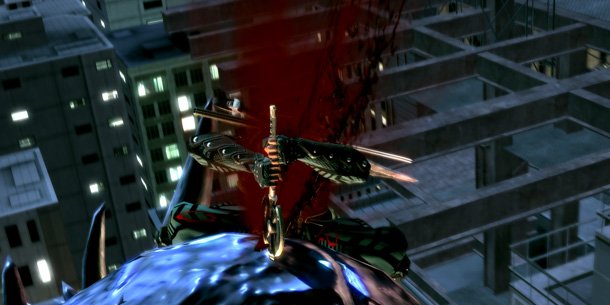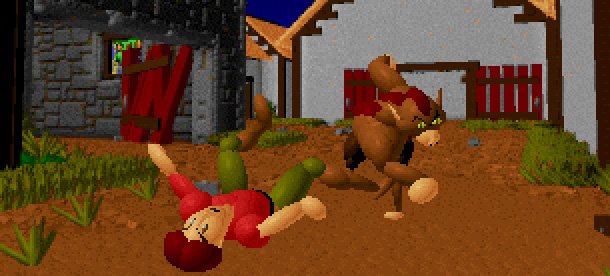Goodbye BBFC, hello PEGI - All change for the official UK games ratings system

Yes, it's time to say a fond farewell to those bright 15 and 18 logos on games. PEGI is now in charge with a completely different set of age ratings - 12+ to 18+ with a few pauses in the middle to let teenagers legally shoot some stuff in the face too. Let's take a closer look at the new rules, and remember some of the highs and lows of the BBFC's tenure as gaming's moral protectors.
To be clear, for those outside of the UK specifically, over here game ratings aren't a voluntary or unofficial thing - as soon as games were deemed to be graphic enough to fall under the British Board of Film Classification's remit, selling or renting them to anyone under the specified age became a crime, with the current penalties going to £20,000 in fines and six months in jail. That said, the enforcement of this was never particularly strong, and shops would sell to parents who didn't care if their kids were playing Rip Gandhi's Tits Off II: Praise Satan as long as it kept them quiet for a bit.
The main reason to switch things to PEGI is one of consistency; being pan-Europe, it means developers and publishers only have to worry about - and of course, pay for one logo. For parents though, it's a little more informative - as well as being more granular and not assuming that controversial content only becomes okay at 15 (or 16 in this case), it offers a few hints as to why it got that rating - violence, bad language, sex related content and so on. You can see the full set at the official PEGI site . Sadly, there's no rule that bad games - say, anything that goes under 50% in PC Gamer - have to emblazon themselves with the icon of a big pair of stinky pants as a warning to less discerning buyers.
But it's early days. Feel free to start a petition to get that fixed.

Will this change-over mean much different for customers? Not really. In most cases, the logo will still be ignored by the people it's intended to help, and the rules haven't changed that much for people who pay attention. There is however one potential bonus, which is that PEGI ratings are specifically geared towards games instead of sharing with movies. That offers much more flexibility in reacting to the medium directly instead of asking "what if" questions, though it remains to be seen if that will actually happen. As it stands, the examination is primarily done via the publisher/developer filling in a questionnaire to declare its content, then that being checked, rather than simply having someone in a room play it through and decide "Yeah, that's not too bloody. Let's call it a 12."
The BBFC however will be continuing to rate certain 'linear' content, which could cover anything from machinima on a disc to Making Of documentaries. There's more on that over on their site , and plenty more on the new ratings at Ask About Games . Check them for everything you need to know about what the new ratings are, mean, and how they're going to be decided from now on.
But how did the BBFC do between getting into games in 1986 and yesterday? Here's the abridged history, ignoring a vast number of non-silly examples because who wants to read those?
Keep up to date with the most important stories and the best deals, as picked by the PC Gamer team.
1986: First game to be rated 15: Dracula. A cynic might suggest that this was mostly a publicity stunt, and that cynic would be right. Why? It was a text adventure with a few graphics. You know how books aren't officially rated by the BBFC? Right. There was no real reason for this to be either.
1994: Ecstatica. 18 rated for many reasons, including nudity, torture, violent deaths and religious symbols. It's hard to argue with the rating on content grounds. That said, it did look like this...

1997: Shadow Warrior. Due to the same rules that turned the Teenage Mutant Ninja Turtles into the mere Hero Turtles, this ninja themed shooter couldn't be released in the UK unless it removed the main character's shuriken weapon for more morally defensible darts. Handfuls of darts. Because it doesn't hurt to get hit in the face with darts. And they're much harder to get hold of on UK streets than ninja stars.
1997: Carmageddon became the first game to be refused a certificate, with the BBFC deciding that it didn't want to put even an 18 rated sticker on a game specifically about hitting people with cars. It got around this by replacing the pedestrians with green-blooded zombies. Players got around this by downloading a patch. Even the zombies were preferable to the German version though, which like many games was only released in a sanitised version that replaced the people with floating bin like things.
2003: UK journalist Richard Cobbett asked to show proof of age to purchase copy of PC Gamer magazine by stupid clerk in WH Smiths due to some trailer or something on the disc, despite being in it and quite clearly over 18. Luckily, did not hold grudge for next decade or so.
2005: Picking individual moments does make the BBFC seem more reactionary than it actually was (honestly, most of the time, it's been fine and got much better over time), so here's the other side of the coin. When the Grand Theft Auto Hot Coffee furore kicked off a firestorm of controversy in the US, the BBFC's response was, more or less, "Whatever. We said it was for adults anyway." Correct.
2006: And another one. When modders released a patch for The Elder Scrolls: Oblivion to remove the female characters' normally welded on bras, the ESRB flipped its lid. The BBFC simply shrugged and showed it was paying attention by responding ""Were it the case that the developer themselves had included and failed to disclose certain modifications of content, a recall may be required, but not as a result of a patch that has been placed on the Internet by a third party." The game's original 15 rating was retained in the UK, but it was boosted from "Teen" to "Mature" in the US.

2007 : Manhunt 2 becomes the second game refused certification, though this is ultimately overturned long after everyone stopped caring about Manhunt because it was a bit crap, frankly.
2011 : PEGI originally scheduled to take over game rating duties.
2012 : End of an era, and according to some crackpots, the world!

